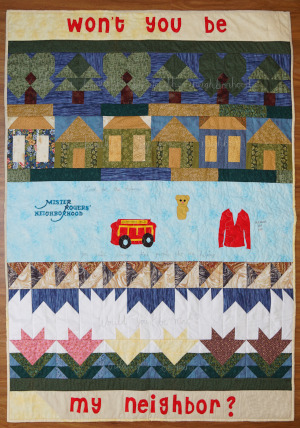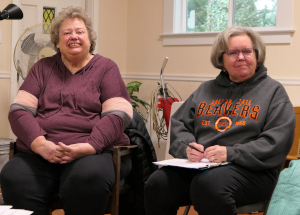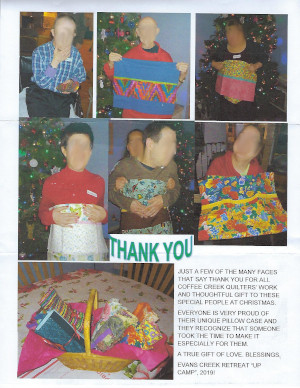Quilts for Camp Erin

Members of Coffee Creek Quilters made 43 quilts for kids attending Camp Erin this year. We challenge ourselves every year and hold a vote for our favorite three quilts. The wonderful quilt by Dawn Yoshizumi, shown at left, was the winner of this year’s competition. Linda Forbes placed second while third place was a tie between Gail Norby and Nancy Dudley. We invite you to view all of the quilts on our 2020 Quilt Challenge page.
All of the quilts will be donated to Camp Erin, a national program where young people learn to grieve and heal following the death of a loved one. Camp Erin provides a unique opportunity for peer bonding between children and teens facing a similar life circumstance. Funded by Eluna (formerly The Moyer Foundation) and local groups, camps are held in 45 locations in the U.S. and Canada. The camp is free for kids ages 6 to 17. Oregon’s Camp Erin is administered by Providence Hospice of Oregon and is scheduled for August 14-16, 2020. You can learn more about Camp Erin on the Providence website.


 CCQ offers four weekly quilting classes for women incarcerated at the Coffee Creek Correctional Facility. Every year our students make at least 100 quilts for donation; last year it was 140. Some years ago it became apparent that it would be most efficient to have a kitmaking committee assemble quilt kits for the classes, so member Nancy Pettit offered to start one.
CCQ offers four weekly quilting classes for women incarcerated at the Coffee Creek Correctional Facility. Every year our students make at least 100 quilts for donation; last year it was 140. Some years ago it became apparent that it would be most efficient to have a kitmaking committee assemble quilt kits for the classes, so member Nancy Pettit offered to start one.